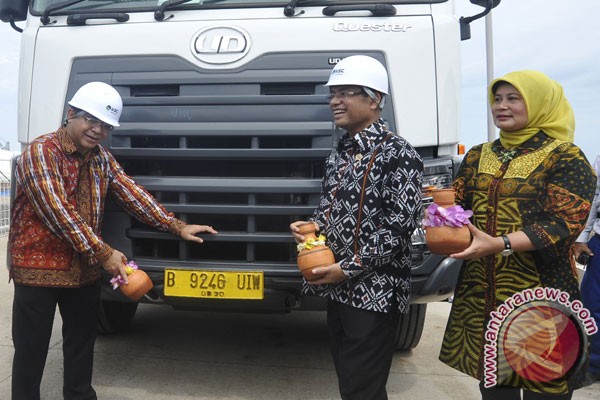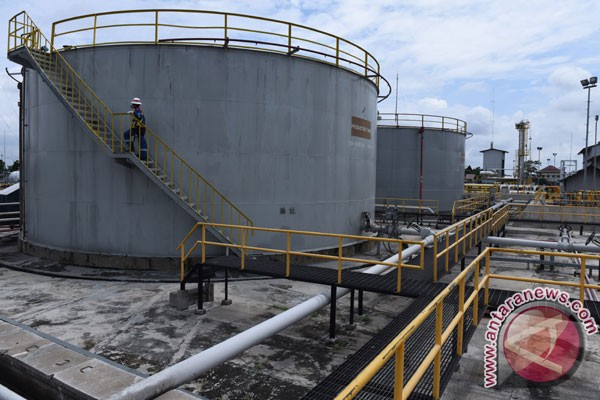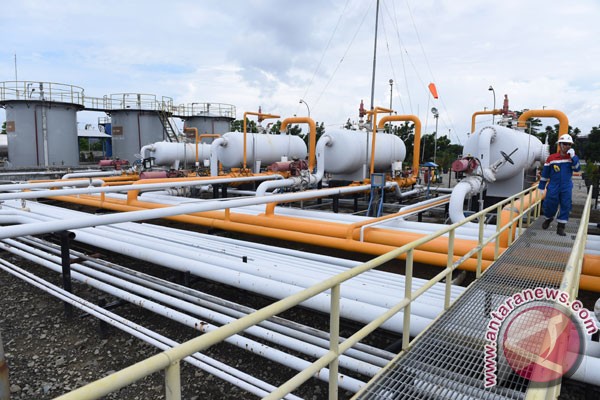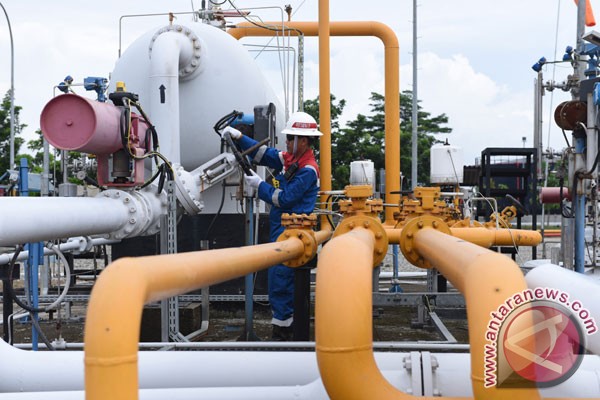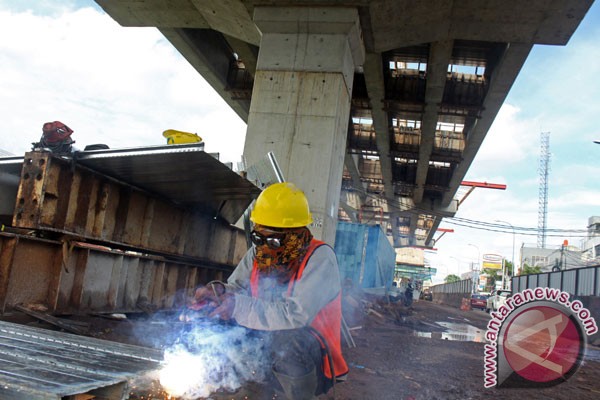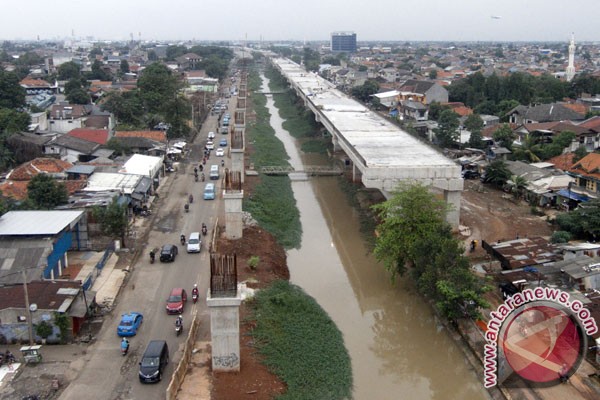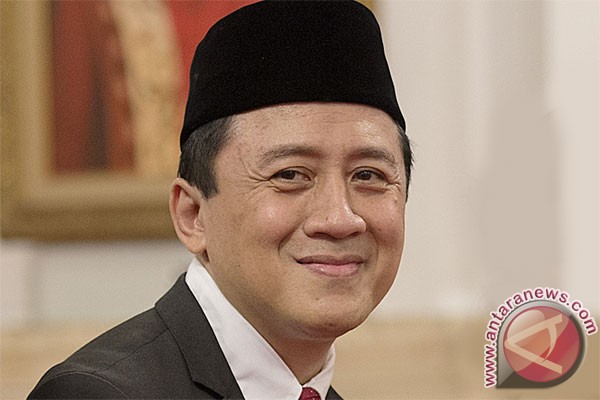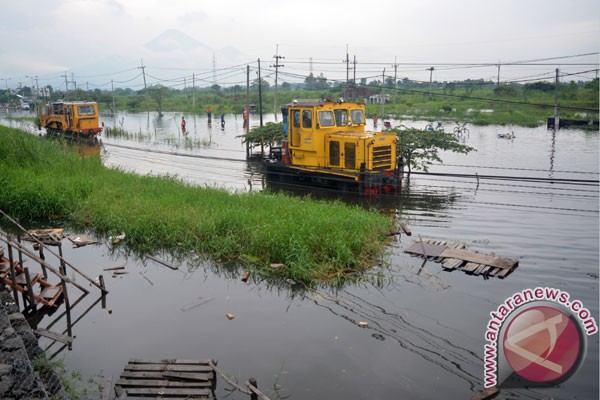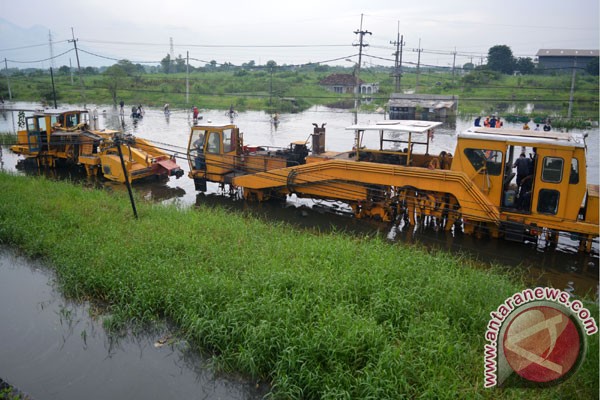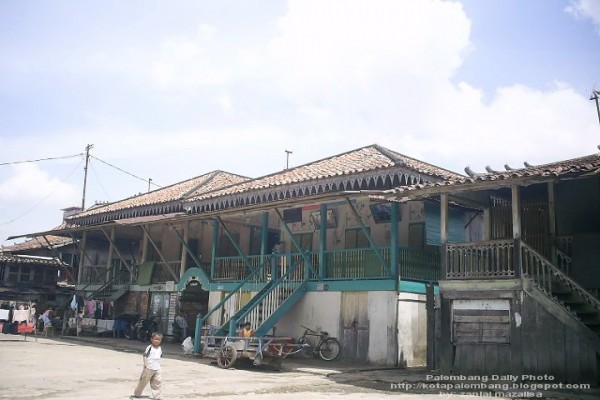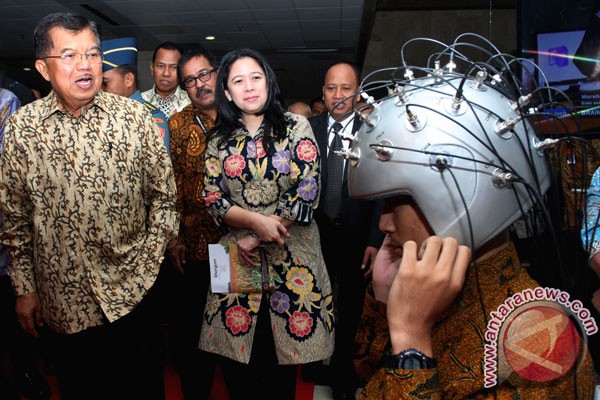Research, technology, and education should embrace future trends: VP Kalla
Senin, 1 Februari 2016 19:24 WIB | 1.962 Views
Vice President M. Jusuf Kalla (left) look helmet cancer detection in Serpong, South Tangerang, Banten Province, on Monday (Feb. 1). (ANTARA/Muhammad Iqbal)
Serpong (ANTARA News) - Research, technology, and education in Indonesia should take into account future trends, according to Vice President M. Jusuf Kalla.
"When we discuss about research and education as well as technology, we talk about the future," Kalla noted while speaking before participants of the National Working Meeting of the Research, Technology, and Higher Education Ministry here on Monday.
The difference between a museum and higher education is that the former reflects the past, while the latter talks about the future.
He remarked that research and technology are crucial to responding to future problems.
Institutions engaged in the research and development of technologies must not merely complain about costs and budget allocation, which is smaller compared to those in neighboring countries.
Despite the limited budget, they must be able to produce something, he added.
Research, Technology, and Higher Education Minister M. Nasir reported that the integration of research, technology, and higher education has been carried out since 2014 and has yielded results.
One of the indicators is the increase in the number of patent applications internationally.
The minister hoped that research and technology would transform national development as the country is entering the era of the ASEAN Economic Community (AEC).
"Research must be down to earth and take into account the publics needs as well as produce something, which is relevant," he emphasized.
In the meantime, President Joko Widodo (Jokowi) had earlier urged universities in Indonesia to undertake downstream research to help address the needs of the public in the new competitive era.
"Universities must take up downstream research, so that the people can enjoy the results in this competitive era," President Jokowi remarked while inaugurating the 2016 National Conference of the Indonesian Rector Forum at the State University of Yogyakarta on Friday (Jan. 30).
Speaking before hundreds of rectors from several universities, the president pointed out that downstream research should contribute to the development of the surrounding areas and not solely to meet the internal goals of the campus.
He suggested that universities can cooperate with the government and private sector in order to support development and conduct such research.
According to the president, the universities must take up research that can benefit the nation. The universities must also help to improve the competitiveness of the people.
(T.M040*B019/Uu.F001/INE/KR-BSR)
Research, technology, and education should embrace future trends: VP Kalla - ANTARA News
------------------------------------------------------------------------------------------------------
------------------------------------------------------------------------------------------------------
Infrastructure firms expand,
book aggressive profit
Prima Wirayani, The Jakarta Post, Jakarta | Business | Sat, February 13 2016, 5:15 PM
Infrastructure companies recorded growth in assets value and profits last year thanks partly to the government’s mammoth budget allocation in the sector.
State-run construction firm PT Waskita Karya booked a stellar 104.89 percent year-on-year (yoy) growth in its net profit last year to Rp 1.05 trillion (US$77.81 million) from the Rp 511.89 billion recorded in 2014.
Waskita corporate secretary Hadi Susilo attributed the growth to the increase in his firm’s revenues.
“Government spending on strategic infrastructure, such as toll roads, provided significant contribution,” he wrote in a text message on Friday.
Waskita’s full year financial report, as submitted to the Indonesia Stock Exchange (IDX), reports that the publicly-listed company reaped revenue of Rp 14.15 trillion last year or 37.51 percent higher yoy than the Rp 10.29 trillion pocketed the previous year.
The company’s costs of goods sales rose 33.22 percent yoy to Rp 12.23 trillion last year from Rp 9.18 trillion in 2014.
President Joko “Jokowi” Widodo boosted government capital expenditure (capex) funds — a spending allocation that includes ministerial investments and infrastructure projects — to around Rp 290 trillion in the revised 2015 state budget, compared with Rp 156 trillion in the original budget formulated by then president Susilo Bambang Yudhoyono.
This year, the government initially set aside around Rp 201.6 trillion for capex in the 2016 state budget, which was approved by lawmakers in late October. However, in a bid to achieve its economic growth target, it plans to increase the amount to more than Rp 310 trillion during the upcoming revision of the 2016 state budget.
Hadi said that his firm would remain focused on infrastructure projects this year and has set a target to close new contracts worth
Rp 63 trillion by year-end, adding that 80 percent of the deals would come from the sector.
Meanwhile, following investments carried out by the publicly-listed company throughout the year, state-owned toll road operator PT Jasa Marga saw its assets value increase by 15.25 percent yoy to
Rp 36.72 trillion last year.
“Last year, we invested in the construction of 13 new toll roads, whose total length reached around 600 kilometers,” Jasa Marga finance director Reynaldi Hermansjah said over the phone.
The investments eroded the company’s revenues, causing a decline in profits, he added.
Jasa Marga booked Rp 9.85 trillion in revenue last year, a 7.41 percent increase yoy compared to
Rp 9.17 trillion garnered in 2014. Its net profit increased 3.52 percent yoy to Rp 1.47 trillion.
Reynaldi said that his firm would allocate Rp 14 trillion capex this year, far higher than Rp 4 trillion last year, as the toll roads were near to completion and were slated to start operation in 2018.
BNI Securities analyst Thendra Crisnanda said that the government’s focus on developing strategic projects would be a big slice of cake for infrastructure company growth.
“The higher infrastructure budget will also affect the firms’ performance this year,” he said.
Responding to the higher budget, state-run builder PT Adhi Karya have set a target to seal new contracts worth Rp 25.1 trillion this year. The firm booked new contracts amounting to Rp 1.1 trillion in January, mainly contributing to its construction business line of 86.9 percent.
-------------------
- See more at:
Infrastructure firms expand, book aggressive profit | The Jakarta Post

